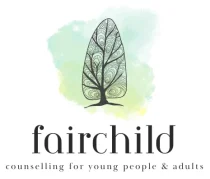Starting counselling can be a significant step towards improving your mental well-being, but it's understandable to feel apprehensive about what to expect. In this blog, we will discuss what to anticipate when starting counselling and the crucial role of the therapeutic relationship, from both the client's and counsellor's perspective.
Embarking on your counselling journey
As you embark on your counselling journey, it's common to feel a mix of emotions, including uncertainty, vulnerability, and hope. Firstly, it's important to understand that the initial sessions are an opportunity for both you and your counsellor to get to know each other. Your counsellor will likely ask questions to understand your concerns, goals for seeking counselling, and your personal history. You may also discuss the framework and expectations of the counselling process. It's natural to feel a little uncomfortable at the beginning, but remember that the counsellor is there to support you through this process.
What is the therapeutic relationship?
The therapeutic relationship is at the core of the counselling experience. From a client's perspective, it involves developing a sense of trust and rapport with your counsellor. Feeling understood, accepted, and respected within the therapeutic relationship is essential for a client's progress and growth. A strong therapeutic relationship allows you to freely express your thoughts and emotions in a safe space, without fear of judgment.
For counsellors, the therapeutic relationship is the foundation of their work. It's about creating a warm, empathetic, and non-judgmental environment where clients can feel secure and supported. Building a strong rapport enables the counsellor to understand the client's unique perspective and challenges, and it paves the way for effective collaboration towards the client's well-being.
In the counselling setting, counsellors aim to provide a genuine and non-biased space where clients can explore their inner thoughts and emotions. They are trained to actively listen, empathise, and guide clients through their journey, but ultimately, the client is in the driver's seat. Counsellors respect the client's autonomy and work collaboratively to establish goals and develop strategies to address the client's concerns.
Open minds, insights and change
Approaching counselling with an open mind can lead to meaningful insights and positive changes. Remember that the therapeutic relationship is a two-way process, requiring honesty and open communication from both parties. While it's normal to feel uneasy at the beginning, staying committed to the process can lead to valuable personal growth and well-being.
Summary
Beginning counselling can be a transformative experience, and the therapeutic relationship plays a vital role in this process. Building trust and understanding between the client and counsellor lays the groundwork for a successful counselling journey. Keeping an open mind and actively participating in the process can lead to a deeper understanding of oneself and pave the way for positive change and growth.
If you have any further questions about starting counselling please feel free to get in contact with me.
